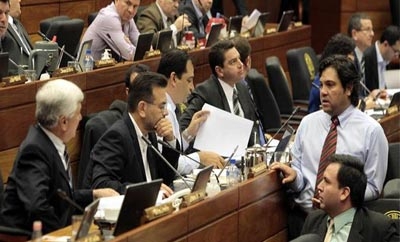Paraguay has passed reforms expanding military powers in the fight against guerrilla insurgents, providing a convenient distraction from the more pressing issues of drug trafficking and organized crime — which hit closer to home for President Horacio Cartes.
The Paraguayan Senate passed reforms to the National Defense Law that grant far greater control of the military to the president’s office, allowing Cartes to use soldiers anywhere in the country at any moment with the only proviso that the government must inform congress of the deployment within 48 hours, at which point congress can vote to end it. Previously, the government could only make such a deployment under a declared “state of exception.”
The government argued the law would enable authorities to respond more quickly and flexibly to the threat posed by the guerrilla insurgents of the Paraguayan People’s Army (EPP).
However, there has been strong criticism of the law, especially from rural social movements and human rights organizations. The National Roundtable of Peasant Organizations (MCNOC) issued a statement saying the law could lead to the kind of repressive military practices seen under dictator Alfredo Stroessner, while the Paraguay Human Rights Coordinator (Codehupy) declared the reforms installed “a permanent state of exception, without time limits, and without the approval and control of the legislative body.”
InSight Crime Analysis
The reforms to the defense law have been pushed through at breakneck speed following the killing of five security guards in an attack earlier this week, which is believed to have been carried out by the EPP.
The attack has allowed the new Paraguayan government to introduce legislation granting it sweeping powers while grandstanding on its hard line approach to the rebels. However, it also serves as a diversion from more serious problems.
Although the EPP guerrillas have been stepping up activities in recent years, they remain little more than a persistent thorn in the state’s side, and likely number less than 100 fighters. The far more serious challenge facing Paraguay is drug trafficking and the growing presence of organized crime. On the day the reforms passed, this was underlined by the mayor of border city San Carlos del Apa, Luis Anibal Schupp, who publicly stated that 80 percent of ranches and estates in the area were owned by powerful narcos.
However, as Cartes has himself been accused of involvement in money laundering, drug trafficking, and contraband smuggling, the EPP make for a much more comfortable target.

